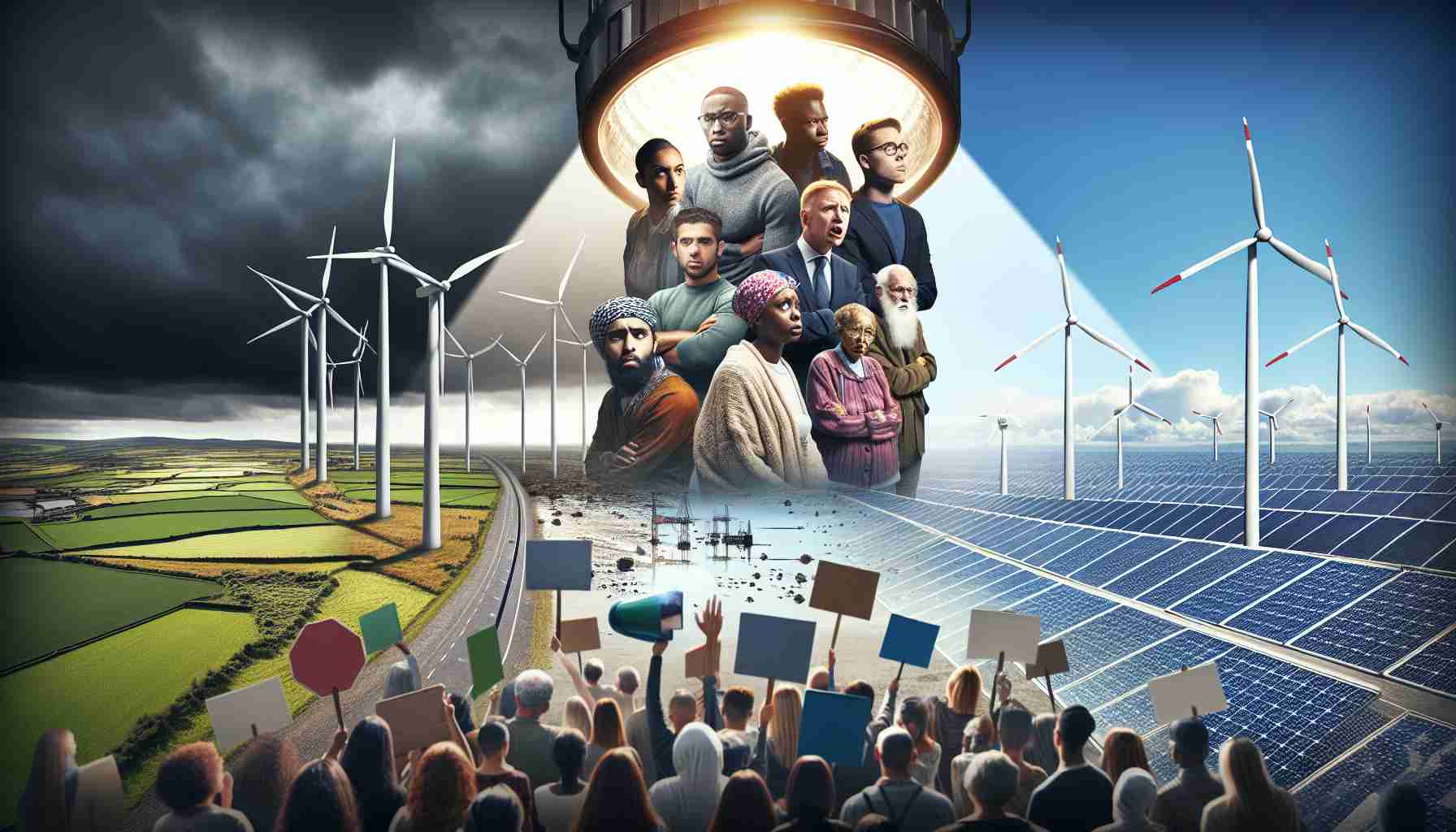
Renewable energy debates heat up as Trump speaks out. Former President Donald Trump has stirred controversy by urging the UK to dismantle its North Sea wind turbines. He criticized the nation’s growing dependence on renewable energy sources just after Apache, a US oil corporation, withdrew from the area, citing hefty windfall taxes as a key reason for their exit.
Trump, known for his pro-fossil fuel stance, emphasized the need for the UK to prioritize oil drilling. His comments echo earlier critiques he made regarding Germany’s renewable energy policies, suggesting that reliance on greener alternatives may not be the best path forward.
Despite Trump’s urging, the UK remains committed to its energy strategy. Prime Minister Keir Starmer and his Labour government are dedicated to expanding wind, solar, and nuclear energy initiatives. There are currently no plans to issue new oil or gas drilling licenses in the North Sea, highlighting a clear divergence in energy strategy between the US and the UK.
As discussions about energy sources continue to evolve, the UK government stands firm in its pursuit of renewable energy, while figures like Trump advocate for a return to traditional fossil fuels. The future of energy policy remains a hot topic, with opinions divided on the best way to secure energy independence and sustainability.
Trump’s Controversial Energy Remarks: Renewable Energy vs. Fossil Fuels
The Current Energy Landscape
Former President Donald Trump’s recent comments regarding the UK’s renewable energy policy have reignited the debate over energy sources. As the UK continues to push forward with its ambitions for an extensive renewable energy framework, Trump’s suggestions to dismantle North Sea wind turbines highlight a fundamental clash in energy philosophy. This divide is not simply a matter of preference but reflects broader global trends and market reactions.
Key Developments
– Trump’s Critique: Trump has criticized the UK’s large-scale investment in wind energy, claiming it has made the nation overly dependent on renewable sources and calling for a stronger focus on fossil fuels.
– Apache’s Withdrawal: The controversial exit of Apache, a US oil corporation from the North Sea, came with a spotlight on the impact of windfall taxes. Their decision underscores the economic tensions at play when balancing fossil fuel interests with the growing shift to renewables.
– UK’s Stance on Energy: In contrast, the UK government, led by Prime Minister Keir Starmer and the Labour Party, remains unwavering in its commitment to expand renewable energy sources, including wind, solar, and nuclear energy. The policy direction indicates no upcoming plans for new oil or gas drilling licenses in the North Sea.
Comparisons in Energy Strategies
| Aspect | Trump’s Perspective | UK’s Approach |
|————————-|—————————————-|——————————————–|
| Focus | Promotes fossil fuel exploration | Advocates for renewable energy expansion |
| Recent Events | Critique of wind energy investments | Commitment to renewable energy initiatives |
| Energy Policy Goal | Energy independence via fossil fuels | Sustainability and climate goals |
Pros and Cons of Each Approach
Trump’s Fossil Fuel Focus
– Pros:
– Potential for immediate economic gains and job creation in drilling and fossil fuel markets.
– Increased energy production capacity from established technologies.
– Cons:
– Contributes to climate change and environmental degradation.
– Risks long-term energy dependency on volatile fossil fuel markets.
UK’s Renewable Energy Strategy
– Pros:
– Promotes sustainability and reduces carbon footprint.
– Potential for long-term energy independence and stability through diverse renewable sources.
– Cons:
– High initial investment costs and infrastructure challenges.
– Possible energy supply vulnerabilities during transition periods.
Emerging Trends and the Future of Energy
As the energy landscape evolves, there are several key trends to monitor:
– Increased Investment in Renewables: Global investments in renewable energy are expected to rise significantly, with projections indicating that clean energy could become the dominant energy source in several regions by 2030.
– Technological Innovations: Advances in energy storage, such as battery technology and smart grid solutions, are crucial for balancing supply and demand in renewable energy systems.
– Market Predictions: Analysts predict a shift towards greater energy diversification, with countries likely seeking a mix of renewables and fossil fuels during transitional periods.
Conclusion
The ongoing debate surrounding energy sources reflects broader societal values and priorities. With Trump advocating for fossil fuel dominance and the UK firmly committed to renewables, the conversation is set to continue as both sides present their cases for energy independence and sustainability. As countries navigate these challenges, the future of energy policy will likely be shaped by innovation, economic realities, and environmental imperatives.
For additional insights on renewable energy trends and policies, visit energy.gov.



